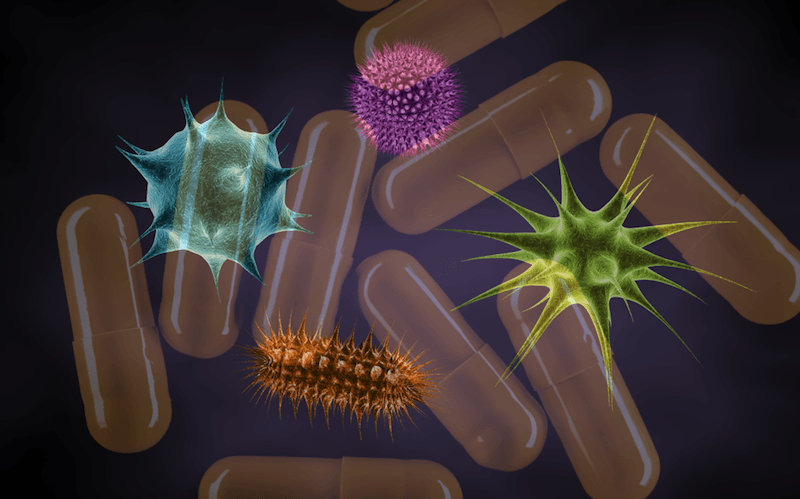Could fecal transplants heal Crohn’s and colitis in children? Two trials are set to find out

Could an exciting potential treatment for inflammatory bowel disease (IBD) be found in the gastrointestinal tract itself? That’s the theory behind a pair of new studies by Stacy A. Kahn, MD, which will investigate the potential role of fecal microbial transplant (FMT) in the treatment of Crohn’s disease and ulcerative colitis in children.
In IBD, the immune system attacks healthy cells in the digestive tract, triggering symptoms such as abdominal pain, fatigue, poor growth and bloody diarrhea. Children with IBD can also experience problems elsewhere in the body, including joint pain, liver disorders and eye inflammation.
Known colloquially as the “poop pill,” or “stool transplant,” FMT harnesses growing knowledge about the gut microbiota, the collection of bacteria and other microbes that populate our GI tract.
“Studies in humans and animals show that the presence of inflammation in the GI tract is related to changes in gut bacteria,” says Kahn, an attending physician in the Inflammatory Bowel Disease Center at Boston Children’s Hospital. “But in IBD, it isn’t clear yet whether those bacterial changes are cause or effect.”
We’re essentially delivering a black box to patients by giving them the entire contents of someone else’s stool. We don’t yet know which of the ingredients are most beneficial or how those ingredients work.Despite such basic questions, evidence does support the use of FMT in gastrointestinal diseases where dysbiosis (disruption of the normal balance of microbiota) plays a role. For instance, research at Boston Children’s and elsewhere suggests that encapsulated fecal material from healthy donors is a safe and effective treatment for recurrent Clostridium difficile (C.diff), an infection that causes diarrhea, abdominal pain and fever, and in severe cases can be fatal. In the Boston Children’s study, FMT was shown to be almost 90 percent effective in curing this debilitating disease.
Testing FMT in childhood IBD
However, IBD is a far more complex condition, with a disease course and symptoms that can vary greatly between individual patients. Likewise, FMT contents differ based on the donor, and they can be administered in multiple ways, including via colonoscopy, enema, nasogastric tube and capsules.
“We’re essentially delivering a black box to patients by giving them the entire contents of someone else’s stool,” explains Kahn. “We don’t yet know which of the ingredients are most beneficial or how those ingredients work.”

That may partly explain why studies in adults with IBD have had mixed results — and why investigators have found that FMT appears to trigger symptom flares in about 15 percent of recipients. Although other serious adverse events are rare, some research has identified occasional side effects associated with FMT in adults, including fevers, abdominal tenderness and elevated levels of inflammatory markers.
To determine whether FMT is safe for children, Kahn and her colleagues at Boston Children’s IBD Treatment and Research Center have launched two randomized clinical trials. One will evaluate the safety of FMT in children age 12 and older with Crohn’s disease; the other will do the same in those with ulcerative colitis.
Both trials will begin with a pretreatment course of antibiotics, followed by an FMT enema and an eight-week course of encapsulated FMT, provided by the nonprofit stool bank OpenBiome. The studies will also include an open-label phase to give all patients the opportunity to receive FMT. While the focus of this research is safety, a secondary aim is to examine whether it eases the children’s symptoms.
“We believe that these two studies will be the first randomized controlled trials of FMT in children with IBD,” says Kahn. “That’s very exciting, because they could have important implications for the field of pediatric gastroenterology.”
Microbiota on the move
Indeed, FMT has become a hot topic among researchers and clinicians: A glance at ClinicalTrials.gov reveals some 170 studies on FMT, with applications as diverse as type 2 diabetes, cirrhosis and HIV. Microbiota therapeutics are of great interest to pharma as well. “There’s an explosion of research in this area,” says Kahn. “There’s a lot we still don’t know, but the field is evolving very quickly.”
Despite the “yuck” factor involved, that excitement has made its way to patients with IBD and their families, who are seeking new approaches to this often-debilitating disease. Previous research by Kahn has shown that 46 percent of adult patients with IBD would be interested in or willing to consider FMT. That increased to 54 percent if they had been hospitalized.
“Until we have a cure, we hope that FMT will prove to be a useful therapy in the fight against Crohn’s disease and ulcerative colitis,” Kahn says.
For more information about Kahn’s studies, email FMT@childrens.harvard.edu.
Related Posts :
-

‘The reason I became a nurse’: Maeve’s memories of laryngeal cleft repair
Being a gastroenterology nurse is more than a profession for Maeve Lee. When she cares for patients with feeding tubes, ...
-

A journey through the intestine during colitis, cell by cell
Inflammatory bowel disease (IBD), causing devastating abdominal pain, persistent diarrhea, and rectal bleeding, is hard to control with current treatments. ...
-

‘Everything fell into place’: Innovative POEM procedure lets Peyton eat without pain
Peyton Reed, 14, is a typical teenage boy: He enjoys tennis, video games — and food. So when eating became so painful ...
-

Microvillus inclusion disease: From organoids to new treatments
Microvillus inclusion disease (MVID) is a rare type of congenital enteropathy in infants that causes devastating diarrhea and an inability ...




